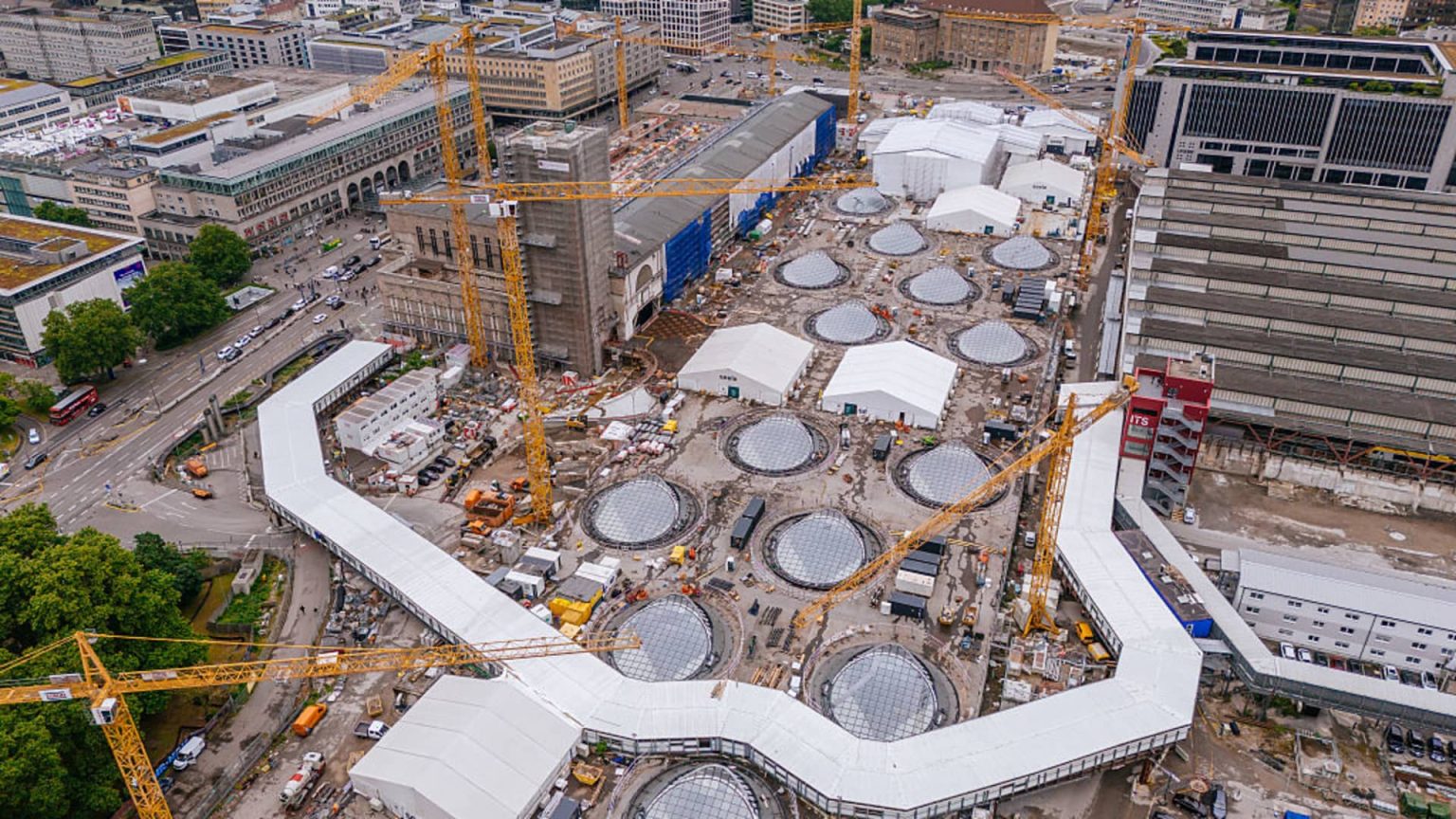Germany’s newly established government is turning to the private sector in a bid to rejuvenate the nation’s infrastructure, which has faced chronic underinvestment. Economy Minister Katherina Reiche recently emphasized the urgency for increased funding, highlighting a dependence on private capital to remedy the infrastructure crisis. Innovative measures and reforms are being initiated to attract investments, alongside a significant constitutional amendment aimed at bolstering the funding necessary for infrastructure and defense spending.
| Article Subheadings |
|---|
| 1) Germany’s Infrastructure Crisis Deepens |
| 2) The Role of Private Investment |
| 3) Funding Requirements and Estimates |
| 4) Political Will and Bureaucratic Challenges |
| 5) Future Outlook and Investor Sentiment |
Germany’s Infrastructure Crisis Deepens
In recent history, Germany has been confronted with severe infrastructure challenges resulting from prolonged periods of diminished public investment. Critical facilities have begun to fail, with reports citing crumbling bridges, outdated train tracks, and a lack of modern digital infrastructure. As the nation grapples with these pressing issues, the new coalition government has recognized infrastructure as a top priority. The recent fiscal reforms underscore an urgent need for comprehensive measures that address these systemic problems and facilitate timely upgrades and modernization efforts.
The Role of Private Investment
With public funding expected to cover only a fragmented portion of the investment needs, the new government is actively seeking to foster private sector investment. Katherina Reiche articulated the necessity for a balanced approach involving both public and private resources, stating that “90% of what we need will require private investments.” This shift in strategy aims to unlock substantial capital that can be channelled into vital infrastructure projects.
Officials from both the government and the private sector are emphasizing an optimistic outlook regarding collaborations. Greg Fuzesi, a euro area economist at J.P. Morgan, highlighted that concrete opportunities are finally emerging in sectors such as defense and infrastructure. There is a growing sentiment among investors, as reflected by Stefan Wintels, CEO of KfW, who noted significant interest from investors in cities such as New York and London to engage in German projects.
Funding Requirements and Estimates
The need for investment in Germany’s infrastructure is staggering. With thousands of bridges deemed unsafe and inadequate rail systems, estimates suggest that Germany requires approximately €600 billion over the next ten years to fully upgrade and modernize its infrastructure. Reports indicate that €100 billion is needed for bridge repairs alone while the state-owned train operator, Deutsche Bahn, requires €150 billion by 2034 to maintain and enhance its rail network.
There is a consensus between various reports and organizations regarding the monetary needs necessary to bring Germany’s infrastructure into the modern age. The urgency of these investment needs highlights not just the deterioration of public works but also the implications for economic stability of the country moving forward.
Political Will and Bureaucratic Challenges
Despite the political momentum, significant uncertainties continue to cloud the path forward. Jens Thiele, head of project finance at Hamburg Commercial Bank, pointed out concerns regarding bureaucratic processes that may delay the initiation of new projects. Over the years, excessive regulations have undermined the efficiency of infrastructure development, raising fears that approval times could hinder the government’s capacity to deliver on imminent investments.
The current administration is keen on enacting reforms that will streamline approvals and reduce red tape. With an ambitious plan on the horizon, government officials are striving to simplify the planning processes to make the path clearer for potential private investors. The stakes are high, as ensuring timely execution of infrastructure projects is crucial for fostering investor confidence.
Future Outlook and Investor Sentiment
The recent political efforts to engage private capital and streamline processes have fostered a promising environment for infrastructure investment in Germany. Market analysts indicate a noteworthy surge in investor interest, which may lead to substantial financial influx in the infrastructure sector. Key figures in the investment community express a sense of optimism regarding the reforms being proposed. Robin Winkler, chief economist at Deutsche Bank, affirmed this shift as well, highlighting the potential for a wave of investments to follow the government’s initiatives.
However, it remains uncertain when—and to what extent—these plans will translate into tangible results. Political will is essential, and as potential investors await clarity on regulatory reforms and execution capabilities, the government faces mounting pressure to deliver on its commitments.
| No. | Key Points |
|---|---|
| 1 | Germany’s infrastructure is suffering from years of underinvestment, requiring urgent attention. |
| 2 | The government seeks to mobilize the private sector for investments, aiming for 90% of funding from private sources. |
| 3 | Funding estimates suggest Germany requires €600 billion for infrastructure improvements over the next decade. |
| 4 | Bureaucratic hurdles pose significant risks for timely project execution, prompting government reforms. |
| 5 | Investor interest in German infrastructure is growing, marking a potential turnaround for the sector. |
Summary
The outlook for Germany’s infrastructure investments holds significant potential, marked by the government’s proactive strategies to engage private funding and reform bureaucratic obstacles. As infrastructure crises hinder economic progress, the successful implementation of these initiatives will not only revitalize vital public works but also determine the broader economic landscape for years to come.
Frequently Asked Questions
Question: What are the main challenges facing Germany’s infrastructure today?
Germany’s infrastructure suffers from chronic underinvestment, leading to crumbling bridges, outdated rail systems, and insufficient digitalization. Public funding remains limited, necessitating the mobilization of private investments to address these urgent needs.
Question: How much funding does Germany need for its infrastructure projects?
Experts estimate that Germany requires approximately €600 billion over the next decade to modernize and maintain its infrastructure, with specific funds needed for bridge repairs and upgrades to the rail network.
Question: What role does the government play in attracting private investments?
The government is reforming bureaucratic processes and creating incentives to attract private investments. This approach aims to streamline project approvals and mobilize the investment needed for crucial infrastructure upgrades.


